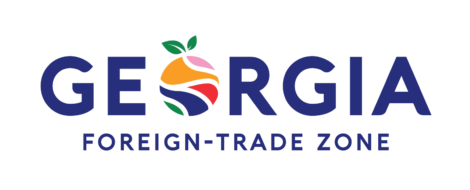Conversations: Lewis Liebowitz On Section 232, Safeguard Remedies
Earlier today, GFTZ President & CEO Julie Brown spoke with Lewis Liebowitz, an international trade and Customs attorney based in Washington, D.C., as part of an ongoing conversation series about policy developments in U.S. international trade.
Q: Lewis, thanks again for taking some time to talk with us. There have been media reports about possible changes to Section 232 tariffs and quotas before January 20. What have you heard?
A: I think it’s possible that future of the steel and aluminum tariffs, and additional investigations that are pending, could result in presidential proclamations during the remainder of President Trump term in office. Right now, there are two Section 232 investigations before the Commerce Department or the President. Just this week, the Commerce Department announced the termination of the 232 investigation of mobile cranes; so transformer components (cores and laminations) and vanadium are still active.
The transformer component action, which is reportedly at the White House for final decision, could result in a presidential proclamation before January 20. Cleveland-Cliffs CEO Lourenco Goncalves has threated to close the AK Steel plant in Butler, Pennsylvania if tariffs are not levied on imports of cores and laminations, which are important components of electric transformers. If relief is announced before January 20, the incoming administration will have a politically consequential decision to make—whether to rescind the tariffs immediately and risk political fallout, or to keep them in place until some other approach is devised.
It’s also important to note that Section 232 tariffs have been challenged in court in the past. Product exclusions have led the government to settle a few cases, and exclusions could soften the impact of these tariffs on U.S. manufacturers, who employ vastly more workers than the steel and aluminum production industries. But whatever happens in the courts, there will be an imperative to achieve greater cooperation with our allies on issues that are of primary importance, including China. There is a least a fair chance that the steel and aluminum tariffs and quotas will be relaxed by the incoming administration, although probably not terminated suddenly.
Q: Just before Thanksgiving, POLITICO reported that the U.S. International Trade Commission had voted unanimously to allow for the continued application of import duties on large residential washing machines. This is what’s known as a safeguard remedy. How do these work and will they continue?
A: The initial safeguard remedies were due to expire in February 2021 and the ITC vote last Wednesday allows the president to extend the measures, and the way safeguards work will require less “hands-on” decision making by the Biden administration.
Large residential washing machines and solar panels and cells are the subject of ongoing safeguard remedies. Washing machine tariffs have played at least some role in convincing two major international companies (LG and Samsung) to invest in U.S. production. The solar panels case has several interesting aspects. There are two major sectors of the industry at loggerheads with each other – manufacturers and installers. The Trump administration sided with U.S. manufacturers of solar cells and panels in 2018. Installers, however, are now in short supply of solar panels and cells. With increasing bipartisan consensus on the value of clean and renewable energy, balancing protective instincts against increasing the competitiveness of the solar industry with other forms of energy will generate an intense debate. For the moment the safeguard measures on solar will remain in place but the pressure on both sides will be intense.
Q: Has your outlook changed at all on the importance of trade policy over the next four years?
A: Trade assumed a major role in international affairs over the last four years. It will be no less important in the next four—and the likelihood that favored industries and companies will have an easy time keeping the protection they have, let alone obtaining new protection, appears to be decreasing.

